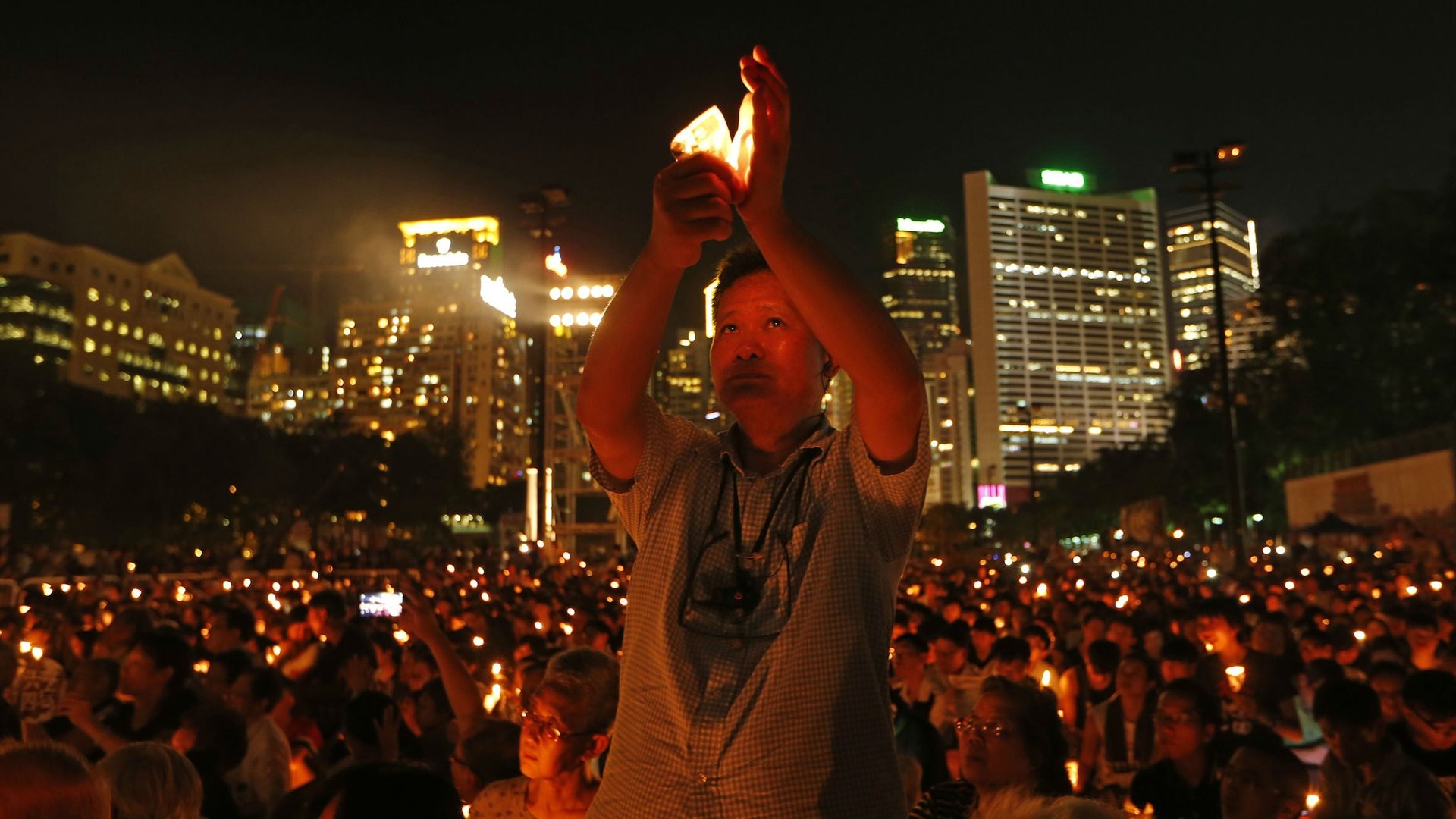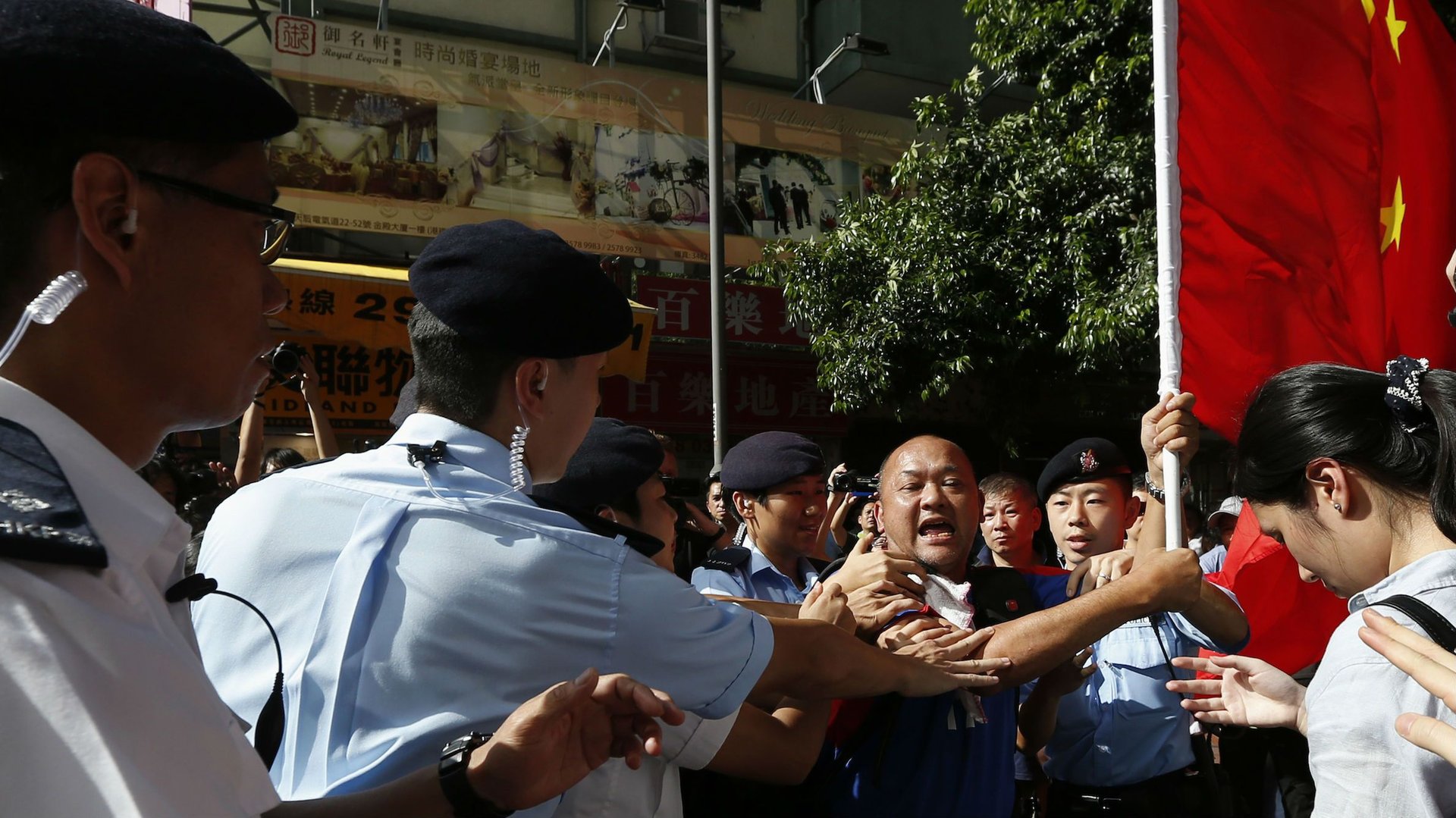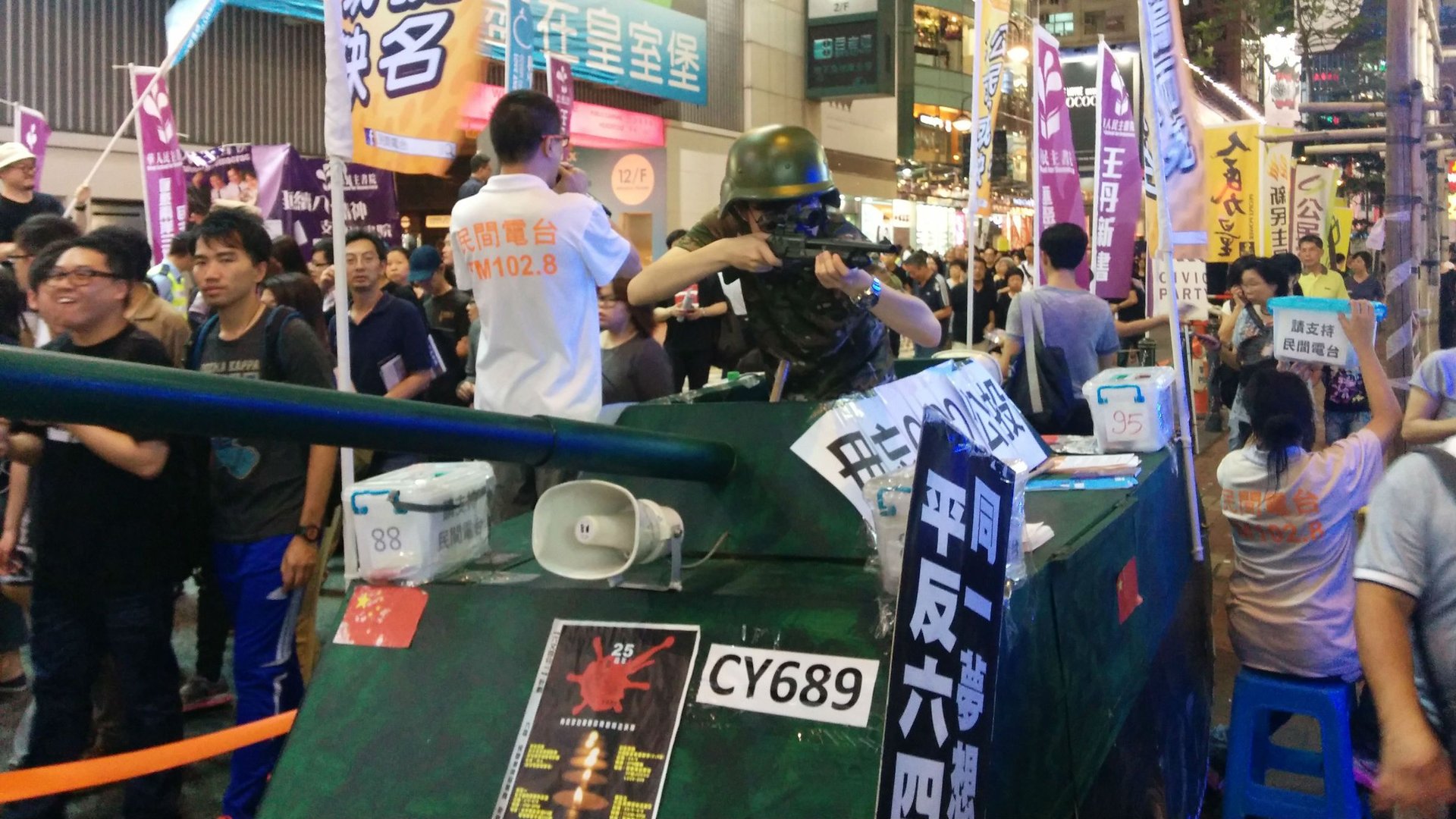Hong Kong’s Tiananmen vigil was really about telling Beijing off
While tens of thousands of people flooded Hong Kong’s Victoria Park last night to remember the 25th anniversary of China’s bloody Tiananmen Square crackdown, a lonely pro-Beijing rally next door saw only 20 attendees.


While tens of thousands of people flooded Hong Kong’s Victoria Park last night to remember the 25th anniversary of China’s bloody Tiananmen Square crackdown, a lonely pro-Beijing rally next door saw only 20 attendees.
Every year around June 4th, residents in Hong Kong host street demonstrations, university talks, and cocktail parties, in addition to a candle light vigil in Victoria Park. But this year’s record turnout—an estimated 180,000, filling more than six soccer pitches—had as much to do with frustration toward Beijing’s present policies toward Hong Kong as remembrance of the past.
“In the past 25 years … the mainland government’s coercive power is ever increasing,” said Bao Pu (paywall), whose father worked with the purged communist official Zhao Ziyang who had been sympathetic with the Tiananmen protesters. “That by itself is a threat to Hong Kong’s freedom.”

Another speaker, Chinese human rights lawyer Teng Biao, yelled into the crowd, “As Hong Kongers say: you can’t kill us all,” receiving cheers in response. Local political parties used the occasion to champion their opposition to encroaching mainland influence. One demonstrator pretended to shoot pedestrians from inside a cardboard tank; others sold tank t-shirts.

Anti-Beijing sentiment has reached a new level in the past few years as more locals believe the city’s democratic principles are being erased by Beijing’s influence over the government, business, and the media. Today, Hong Kong internet users, normally excluded from mainland interference, found their Sina Weibo microblog posts censored for perhaps the first time.
“They see the Beijing government is not letting us have universal suffrage in Hong Kong,” Lee Cheuk-yan, chairman of the Hong Kong Alliance in Support of Patriotic Democratic Movements in China, told local media. Lee said anger at Beijing for opposing open and fair elections in Hong Kong may have driven more people to attend. “They realize that while we are discussing universal suffrage here, our real opponent is Beijing.”